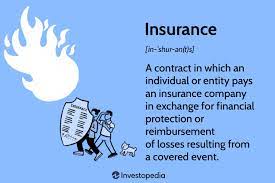Introduction:
Credit scores are a critical component of financial health, influencing not only your ability to secure loans and credit cards but also the cost of various types of insurance. In recent years, the relationship between credit scores and insurance rates has gained significant attention. This comprehensive guide delves into the complex interplay between credit scores and insurance, addressing the importance of credit-based insurance scoring, how it works, the impact on different types of insurance, regulatory considerations, and steps you can take to manage and improve your credit score to potentially lower insurance costs. Whether you’re looking to understand why your insurance rates are what they are or seeking ways to optimize your credit score for better insurance pricing, this guide will equip you with valuable insights and strategies.

Chapter 1: The Basics of Credit Scores
1.1 What Is a Credit Score?
An introduction to credit scores, their purpose, and how they are calculated.
1.2 Factors That Influence Credit Scores
An overview of the key factors that impact your credit score, including payment history, credit utilization, and more.
Chapter 2: Credit-Based Insurance Scoring
2.1 Understanding Credit-Based Insurance Scoring
Explaining how insurance companies use credit scores to assess risk.
2.2 The Logic Behind Credit Scores and Insurance Rates
Why credit scores are considered relevant in determining insurance premiums.
Chapter 3: Types of Insurance Affected by Credit Scores
3.1 Auto Insurance
How credit scores impact auto insurance rates and the relationship between credit and driving habits.
3.2 Homeowners Insurance
The influence of credit scores on homeowners insurance premiums and claims.
3.3 Renters Insurance
Exploring how renters insurance rates are affected by credit scores.
Chapter 4: Health Insurance and Credit Scores
4.1 Health Insurance Premiums
The limited impact of credit scores on health insurance premiums.
4.2 Medical Debt and Credit
The connection between medical debt, credit scores, and insurance rates.
Chapter 5: Regulatory Considerations
5.1 State Regulations
How state regulations influence the use of credit scores in insurance pricing.
5.2 Legal Protections
Exploring consumer protections and rights related to credit-based insurance scoring.
Chapter 6: Managing and Improving Your Credit Score
6.1 Monitoring Your Credit
The importance of regularly checking your credit report and score.
6.2 Strategies for Improving Your Credit Score
Practical steps to take if you want to enhance your credit score and potentially lower insurance costs.
Chapter 7: Factors Beyond Credit Scores
7.1 Risk Factors
Other factors that insurance companies consider when determining rates, such as driving history or home location.
7.2 Comparison Shopping
How comparison shopping can help you find the best insurance rates regardless of your credit score.
Chapter 8: Addressing Credit Challenges
8.1 Dealing with Credit Issues
Steps to take if you’re facing credit challenges and their impact on insurance.
8.2 Alternative Insurance Options
Exploring insurance options for individuals with low credit scores.
Chapter 9: The Future of Credit Scores and Insurance
9.1 Evolving Industry Practices
How the relationship between credit scores and insurance rates may evolve in the future.
9.2 Data Privacy and Security
The role of data privacy and security in credit-based insurance scoring.
Chapter 10: Conclusion
Credit scores play a significant role in determining insurance rates across various sectors, from auto and homeowners insurance to renters and health insurance. This comprehensive guide has provided you with insights into the connection between credit scores and insurance costs, the logic behind credit-based insurance scoring, regulatory considerations, and steps you can take to manage and improve your credit score to potentially lower insurance premiums. Whether you’re looking to optimize your credit for better insurance pricing or simply seeking to understand the factors influencing your insurance rates, informed decision-making is key. By proactively managing your credit and exploring alternative insurance options, you can work toward securing the most favorable insurance rates for your unique circumstances, ensuring that you have adequate coverage without overpaying for it.

